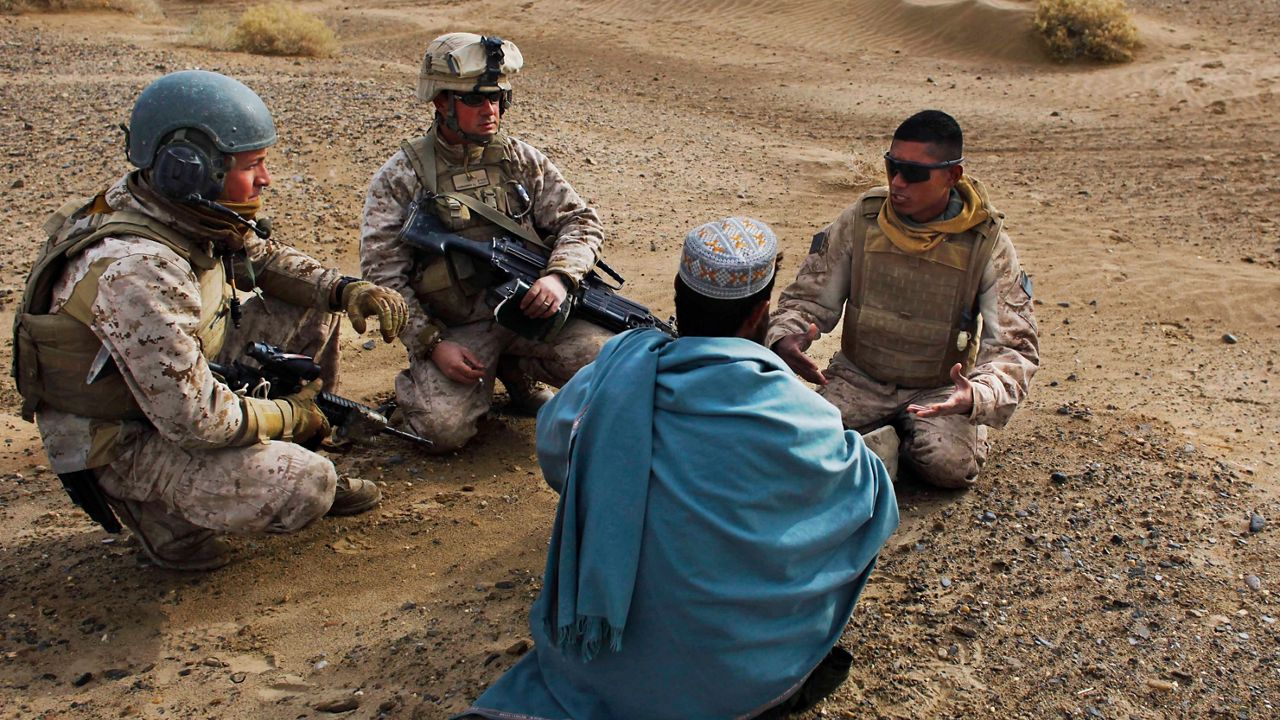LAKELAND, Fla. — Thousands of Afghan translators fear persecution and death from the Taliban for assisting U.S. troops after the 9/11 attacks.
Hardam Tripathi, an immigration attorney at Trip Law in Lakeland, says he applied for a U.S. visa back in July on behalf of his client, who is desperate to get out of Kabul.
What You Need To Know
- Thousands of Afghan translators remain trapped and at risk of being killed by the Taliban for helping the U.S.
- A lawyer in Lakeland and a U.S. Army vet are working together to save one of them
- Updates on the situation in Afghanistan
“It’s a holdup on the U.S. side. I believe the State Department could work a lot quicker than they have,” Tripathi said. “The problem we’re having is little things. like State department representatives who are asking for documents that may need PDF documents as opposed to Word. You’re seeing contractors that have worked for the government less than a month get out quicker rather than actual Afghan translators who worked for more than seven years, side by side with U.S. Special Forces.”
President Biden says the U.S. will stick to a Aug. 31 deadline to get all Americans and vulnerable Afghans out of Afghanistan and withdraw all troops.
WATCH ASHONTI FORD'S STORY BELOW
“When the Taliban came in, they went to the Air Force base and ultimately let out al-Qaida, and you see a rise in ISIS there as well,” Tripatchi said. “It’s a joint terrorist effort on behalf of the Taliban. They’re trying to get more recognition on the world stage, so we do anticipate them possibly working with China, Russia and other countries. They really don’t want the United States there along with our allies.”
“People are dying everyday and it’s these translators who are trying to fight that radical culture there; they were always there.”
— Ashonti Ford TV (@AshontiFordBN9) August 25, 2021
On @BN9 hear from an immigration lawyer and Army Veteran on their efforts to save Afghan U.S. translators who are now targeted by Al Qaeda. pic.twitter.com/qnM6IHbgk8
Tripathi is working specifically with one Afghan translator who worked with U.S. Special Forces for more than seven years. Retired Master Sergeant Joe Diebold told Spectrum Bay News 9 he he worked directly with the interpreter when he served in the U.S. Army.
“On 9/11, we were attacked, and we really didn’t have any connection to Afghanistan. And we needed interpreters to communicate,” Diebold recalled. “We didn’t have the skills to communicate on the ground, so if these people hadn’t taken a very bold and courageous step to join the forces, we would have never accomplished our goal at that time, which was to eliminate the threat with Osama Bin Laden and al-Qaida.”
“They helped us get Osama Bin Laden; these Afghan interpreters served with us every step of the way.”
— Ashonti Ford TV (@AshontiFordBN9) August 25, 2021
U.S. Army Veteran’s are fighting to help Afghan translators. I’m told nearly 100,000 Afghans surround the airport, seeking refugee status. Hear word from the ground on @BN9 pic.twitter.com/BrSvojtDbe
Diebold said there are currently 100,000 Afghan surrounding the airport, seeking refugee.
“Not only are they being targeted, we left biometric equipment behind where they can identify our interpreters, and they’ve been killing them [by] beheading and torturing [them],” Diebold said.
Tripathi says he is working hard to get the interpreter out before the deadline.



